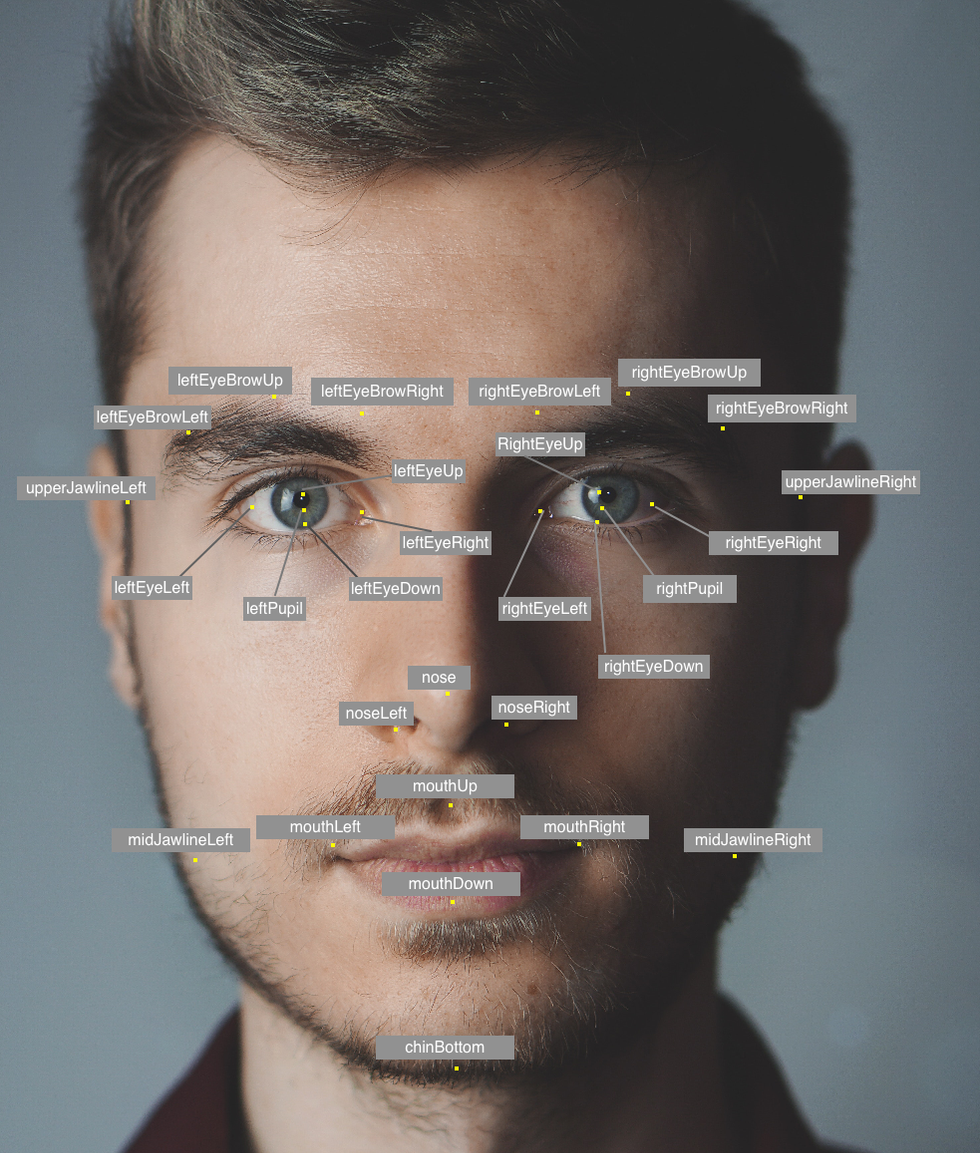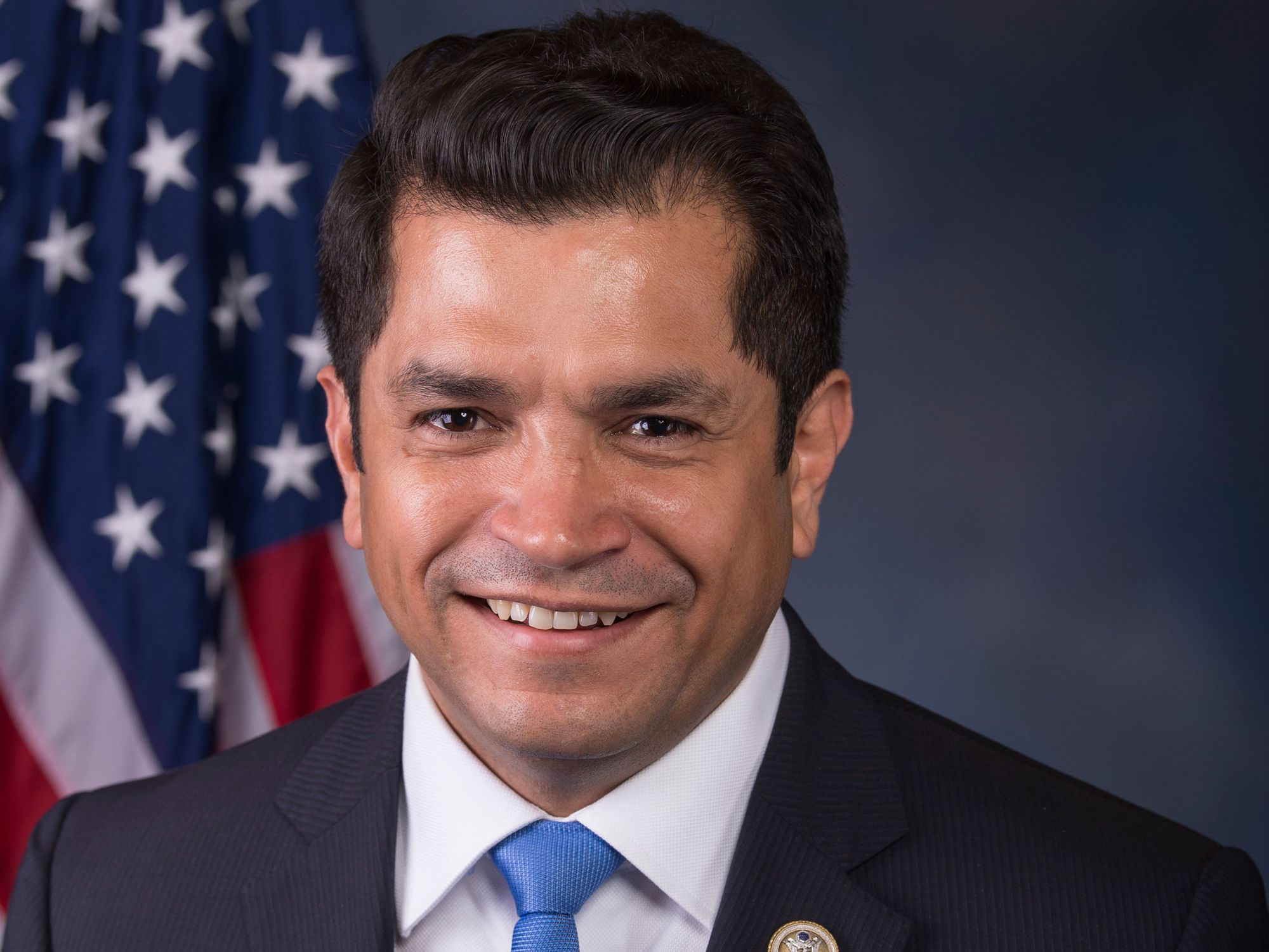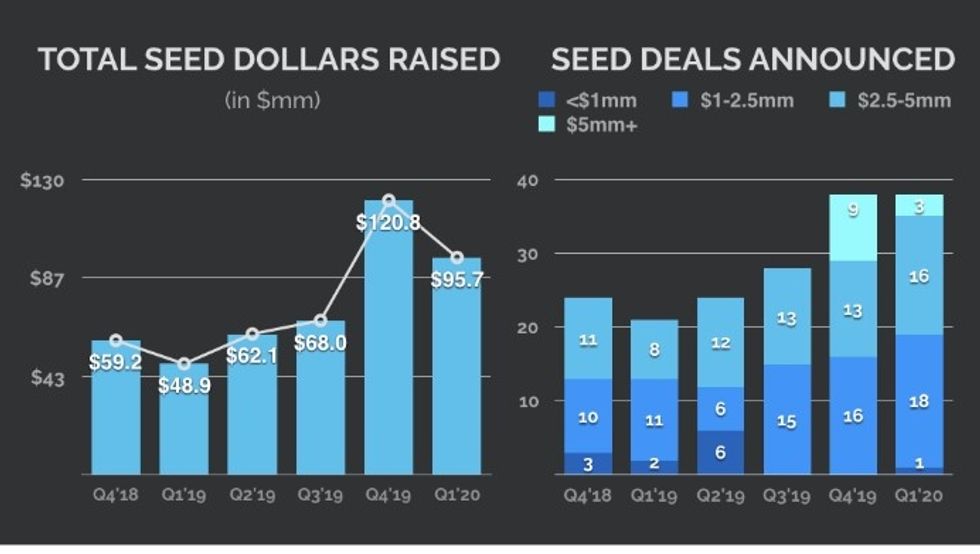Amazon may have halted the sale of its facial recognition software to police, but the move hasn't eased pressure on the tech giant.
In a letter sent to its CEO Jeff Bezos on Tuesday, Democratic Congressman Jimmy Gomez (D-Calif) blasted Amazon's handling of its software, Rekognition, calling on the company to provide detailed info about privacy and bias inherent in the program.
Amazon could not be immediately reached for comment.
But, the letter comes on the heels of Amazon's announcement that it banned police use of the surveillance software for a year so that Congress has time to place stricter regulations on the technology, a move it supports. Microsoft placed a similar moratorium on their facial recognition technology and IBM dropped theirs altogether citing worries about violating basic human rights and freedoms.
Gomez, who represents Los Angeles and sits on the House Oversight and Reform Committee, called Amazon's move nothing more than "performative."
"Corporations have been quick to share expressions of support for the Black Lives Matter movement following the public outrage over the murders of Black Americans like George Floyd at the hands of police," he wrote. "Unfortunately, too many of these gestures have been performative at best. Calling on Congress to regulate facial recognition technology is one of these gestures."
The letter was another salvo in what Gomez characterizes as a two-year long effort to get the e-commerce giant to divulge information about how widespread use of the surveillance software is and how data is collected.
"After two years of formal congressional inquiries – including bicameral letters, House Oversight Committee hearings, and in-person meetings – Amazon has yet to adequately address questions about the dangers its facial recognition technology can pose to privacy and civil rights, the accuracy of the technology, and its disproportionate impact on communities of color," Gomez told Bezos.
The issue has played out for years in the Los Angeles communities Gomez represents. Activists regularly object to the use of technology that has the potential to exacerbate racial bias and impede on privacy. The issue exploded anew on the national stage in the aftermath of the George Floyd protests.
Gomez told Politico last week he's drafting legislation that would place restrictions on local and state police from using the technology.
Read Gomez's full letter below:
Dear Mr. Bezos:
On June 10, Amazon announced a one-year moratorium on police use of its facial recognition technology, Rekognition. In a statement, your company said it supports federal regulation for facial recognition technology and "stand[s] ready to help if requested." In the spirit of that offer, I write to request information on the implementation of the moratorium, and resubmit a list of questions I have asked your company over the course of nearly two years on public safety and civil rights concerns associated with Amazon's facial recognition technology – questions that have largely gone ignored or woefully unaddressed.
While I am encouraged by the direction Amazon appears to be taking on this issue, the ambiguity of the announcement raises more questions than answers. For example, the 102-word blog post announcement fails to specify whether Amazon will stop selling Rekognition to police departments during the moratorium; whether the company will stop the development of its facial recognition system during the moratorium; whether the moratorium would encompass both local and federal law enforcement agencies beyond the police, such as the Department of Homeland Security (DHS) and Immigration and Customs Enforcement (ICE); whether the moratorium applies to current contracts with law enforcement agencies; and whether Amazon plans to submit their technology to the National Institute of Standards and Technology (NIST) for testing before it resumes operations. I am also troubled by the one-year expiration of the moratorium and how Amazon will proceed in the event federal legislation is not signed into law within this self-imposed timeframe.
After two years of formal congressional inquiries – including bicameral letters, House Oversight Committee hearings, and in-person meetings – Amazon has yet to adequately address questions about the dangers its facial recognition technology can pose to privacy and civil rights, the accuracy of the technology, and its disproportionate impact on communities of color. Below is a representative, non-exhaustive list of questions I have asked Amazon regarding your company's facial recognition policies, and its decision to market it and sell it to law enforcement agencies. I look forward to your prompt and public engagement on these matters.
Outstanding Requests
Adequate answers from Amazon on its efforts – if any – to ensure customers, including law enforcement agencies and departments, do not use their product in violation with the company' terms of use, policies, or other restrictions. Requested on July 26, 2018; January 24, 2019; and February 27, 2019.
Information on any internal accuracy or bias assessments performed on Rekognition, and the results for race, gender, skin pigmentation, and age. Requested on November 29, 2018.
Further information on why – despite Amazon's recommend use of Rekognition at a 95% confidence threshold – it sells the product to law enforcement agencies and departments with an option to operate the software at the default 80% threshold. Requested on February 6, 2019; February 27, 2019; and September 26, 2019.
Information fully responsive to my question on whether Amazon built protections into the Rekognition system to protect the privacy rights of innocent Americans. Requested on November 29, 2018.
Details regarding mechanisms – if any – built into Recognition that allow for the automatic deletion of unused biometric data. Requested on November 29, 2018.
Clarification on whether Amazon conducts any audits of Rekognition use by law enforcement to ensure that the software is not being abused for secretive government surveillance. Requested on February 6, 2019; and February 27, 2019.
Answers regarding reports that Amazon is engaged in surveillance partnerships with over 1,350 police departments across the United States. Requested on February 6, 2019; and February 27, 2019.
Records and information related to all law enforcement or intelligence agencies that Amazon has contracted or otherwise communicated with regarding acquisition of Rekognition and currently use the service. Requested on February 6, 2019.
Information on whether Amazon Rekognition is currently integrated with any police body-camera technology or existing public-facing camera networks. Requested on February 6, 2019; and February 27, 2019.
Clarification on whether the training dataset (rather than subsequent calibration sets) skewed white, or whether it was primed to recognize white faces. Requested on February 6, 2019; and February 27, 2019.
Answers regarding reports that Amazon is marketing this technology to ICE. Requested on February 6, 2019; and February 27, 2019.
Corporations have been quick to share expressions of support for the Black Lives Matter movement following the public outrage over the murders of Black Americans like George Floyd at the hands of police. Unfortunately, too many of these gestures have been performative at best. Calling on Congress to regulate facial recognition technology is one of these gestures. However, Amazon – as a global leader in technology and innovation – has a unique opportunity before them to put substantive action behind their sentiments of "solidarity with the Black community" by not selling a flawed product to police, and instead, play a critical role in ending systemic racism in our nation's criminal justice system.
Thank you for your attention to this important matter. I look forward to your responses on this issue.
Sincerely,
Jimmy Gomez
Member of Congress
- L.A. Congressman Slams Amazon's Facial Recognition Technology ... ›
- RealNetworks facial recognition tech IDs celebrities in videos — and ... ›
- The definitive account of Amazon's perilous ambition: Key scenes ... ›





